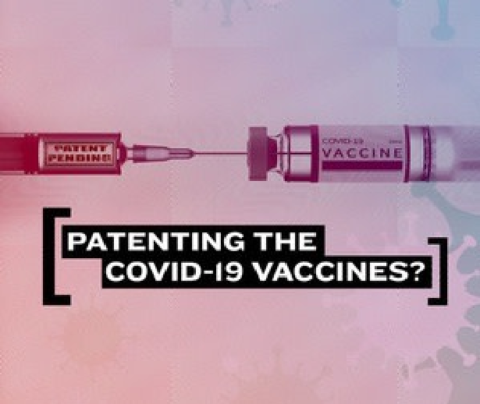On 14 April 2021, IFPMA and a number of its member company experts attended the WTO event “COVID-19 and Vaccine Equity: What can the WTO Contribute”.
The meeting was an opportunity to contribute to the WTO Director General, Ngozi Okonjo-Iweala, expressed desire to find pragmatic outcomes to increase COVID-19 vaccine production. IFPMA and its member companies used their interventions to share their experience of the complexities in researching, developing, registering, manufacturing and distributing COVID-19 vaccines.
Thomas Cueni, Director General, International Federation of Pharmaceutical Manufacturers and Associations (IFPMA) made the following intervention.
“When I look back a year, we from the innovative biopharmaceutical industry had the deep sense of responsibility. Because we knew that this was the biggest public health challenge the world has faced since the Spanish Flu.
We knew [then] that the world was expecting that the industry would find the keys to open the doors, to get us out of the tunnel.
I think it is quite amazing how far we have come in a year. In record time, in [just] 326 days (which is more than three years faster than the fastest ever developed vaccine in the past), we have not just one, but many safe and highly effective vaccines.
At the same time, when we look at the impatience from all of us to get the vaccines to everybody – we know that no one is safe until everyone is safe – I think we tend to forget the daunting task of scaling up manufacturing. Pre-COVID-19 global vaccine capacity was 5 billion doses a year. Here, we talk about manufacturing 10 billion doses for COVID-19 vaccines alone, in 2021.
And it is not surprising that we have seen bumps and hitches along the road. Vaccine manufacturing is a complex biological process. Vaccine development is not [guaranteed] success. We have seen problems with scarcity of raw materials ingredients, and we have heard this afternoon about problems of export restrictions.
We are on track with the target of 10 billion doses. And we are on track because industry is doing what society and all of you would have expected us to be doing. Namely, engaging in unprecedented partnerships and in unprecedented technology transfers. I have counted 272 partnerships, which the industry has signed on COVID-19. More than 200 of them involving technology transfer.
As we have heard from colleagues from the innovative industry but also from the Developing Countries Vaccine Manufacturers Network (DCVMN), this is not just about intellectual property.
It is about sharing know-how.
It is about building trust.
It is about joint training of skilled workers.
It is about providing access to trade secrets.
It is about building trust, that quality will be assured.
70% of vaccine manufacturing is about quality control and that is something which you cannot enforce. It is something, which to be honest, could even be jeopardized if you try to coerce it, because [technololgy transfer] is about two parties who build up trust with each other.
Now having said that:
- we recently co-convened a roundtable with CEPI and Gavi, a roundtable to look at the challenges of [ahead].
- we have seen many partners – Novartis, GSK, Sanofi, Novavax, Moderna working with others. I expect that we will see more. I expect that we will see more also in terms of partnership, building capacity
- we are willing to sit down with our partners in COVAX to see what can be done in terms of supply chain visibility, in [reporting] export restrictions to accelerate trade – WTO will play an important role there.
We truly know that no one is safe until everyone is safe.”









